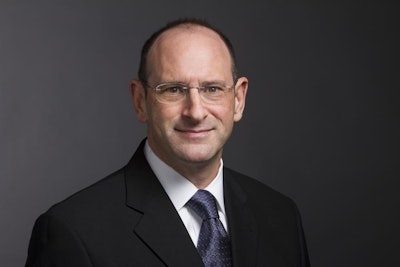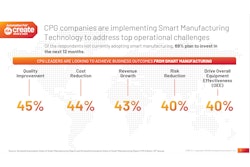In late February, the United Nations Environmental Assembly, representing officials from 175 countries, adopted a resolution aimed at ending plastic pollution and said it would work toward creating an international, legally binding agreement about it by 2024.
A UN press release said the agreement is the most important “international multilateral environmental deal since the Paris climate accord.”
This agreement could result in a supercharged version of anti-plastics measures of the type we’ve seen for years. In short, uh oh.
As you probably know, there have long been state or local or even national environmental laws worldwide that target packaging and specifically plastics, especially single-use plastics. Those laws do lots of different things, for example calling for packaging to be recyclable, or be made of recyclable materials, or be biodegradable, or be made of less stuff than before, or might give you your choice of those options. Also, more and more examples of “extended producer responsibility” laws are placing financial or other burdens on packaging makers or users.
But now comes this big international treaty with its ominous potential, and it’s scary. Then again, how much worse can it be than the present? Maybe some standardization of the approaches to plastic waste would end up being helpful. Bans on materials wouldn’t be, but provisions for large-scale infrastructure for recycling, for example, would.
Two things are obvious: First, sorry, packaging pals, but packaging will probably always be part of public policy discussions of what to do about solid waste. As far back as at least the 1980s, packaging was about 1⁄3 of municipal solid waste in the U.S., and today it’s about 28%.
Second, and obviously, no one, including plastics makers and users, likes those photos showing absurd amounts of plastic waste floating in oceans and waterways. The question is what to do about it, with some voices advocating doing away with plastic articles themselves, while industry and others want to see better solid waste handling solutions.
The crux of the UN group’s resolution on March 2 is a new international effort to “end plastic pollution,” according to the group’s summary, which added, “Heads of State, Ministers of environment and other representatives from 175 nations endorsed this landmark agreement that addresses the full lifecycle of plastic from source to sea. Plastic production has risen exponentially in the last decades and now amounts to some 400 million tons per year—a figure set to double by 2040.”
If you read the four-page resolution, you see that the bad news is that a lot of the wording is vague and general, but the good news is that a lot of the wording is vague and general. That is, it isn’t certain what kinds of measures the ultimate treaty will call for, and how mandatory or voluntary they will be. Also, there should be ample opportunities for input into the final treaty’s provisions over the next two years. The advance copy of the draft resolution I reviewed emphasizes the importance of including all relevant stakeholders in discussions of the final treaty. It also recognizes that national or local priorities for how to attack the problem should be given prominence, and that both voluntary and mandatory standards have their place.
Interestingly, as if reading the minds of concerned industry observers, the UN Environment Program’s executive director, Inger Andersen, was specifically asked in a Q & A document whether the agreement that comes out of this process would “cover creation of plastics as well as disposal,” and whether the agreement is likely to cover “just ocean pollution, or all plastic pollution” and whether “different types of plastic or ingredients in plastic [will] be banned or treated differently” (Yes, they asked her a compound question that would be objectionable at a trial.) She answered, in part, that “We seek rapid, ambitious and meaningful global action to curb the scourge of plastic pollution and this means incorporating different views to arrive at a framing that allows us to meet a range of economic, social and environment objectives.”
She continued, “Member States will need to consider in their negotiations the different types of plastics and additives within them, especially to allow plastics to be recycled safely and to foster a circular plastics economy.”
The Plastics Industry Association, the industry’s leading voice in public policy debates, issued a statement from its president and CEO, Tony Radoszewski, that reminded folks of the many benefits of plastics, welcomed the discussion at the UN, saying in part, “Our members share the goal of keeping any of the products they manufacture from ever getting into the environment,” and that they look forward to participating in the UN process.
Michelle Carvell, of industry environmental consulting group Lorax EPI, said that while some countries or regions have taken actions such as banning single-use plastics, the UN action actually has some welcome features, noting that “The UN treaty comes at a good time. Rather than the legal mandate, I believe the best part of this development is to provide a collaborative platform for different countries to share policy and facility building knowledge.” She also said its broad approach means that “the plastics treaty is expected to have a much bigger impact than national/regional plastics ban or EPR. On the other hand, due to the amount of stakeholders, it could take relatively much longer than regional regulations . . . to finalize the legally binding global agreement. Larger compromises on the scope of regulated plastics products and enforcement are also expected.”
Underlying all this is that question of whether plastic pollution represents a problem with plastic as such or with waste handling and personal habits. Here’s hoping that rather than making plastics a permanent pariah worldwide, the UN group hears from enough industry advocates to appreciate plastics’ many advantages, and that any decisions it makes are well-informed and practical. PW
Eric Greenberg can be reached at [email protected]. Or visit his firm’s website at www.ericfgreenbergpc.com.
INFORMATIONAL ONLY, NOT LEGAL ADVICE.


























